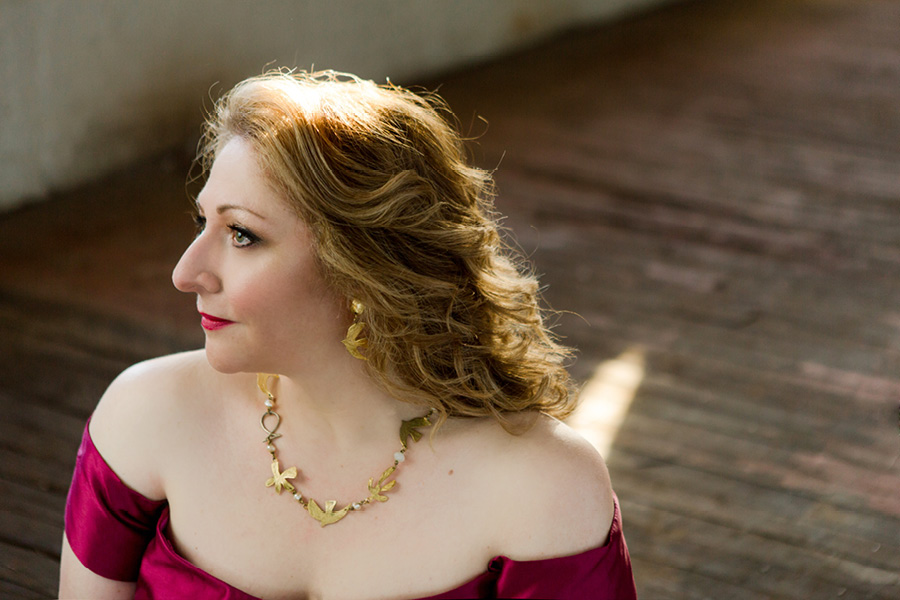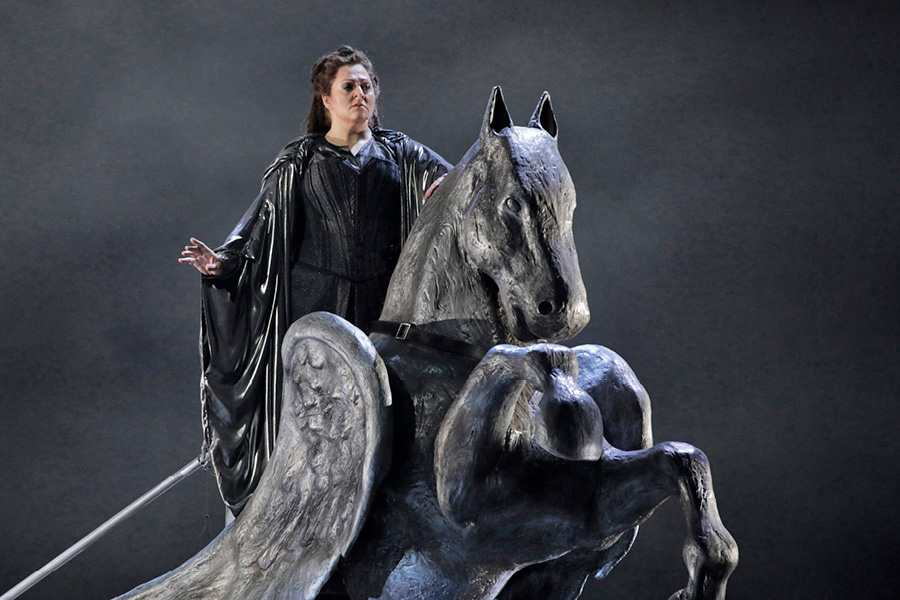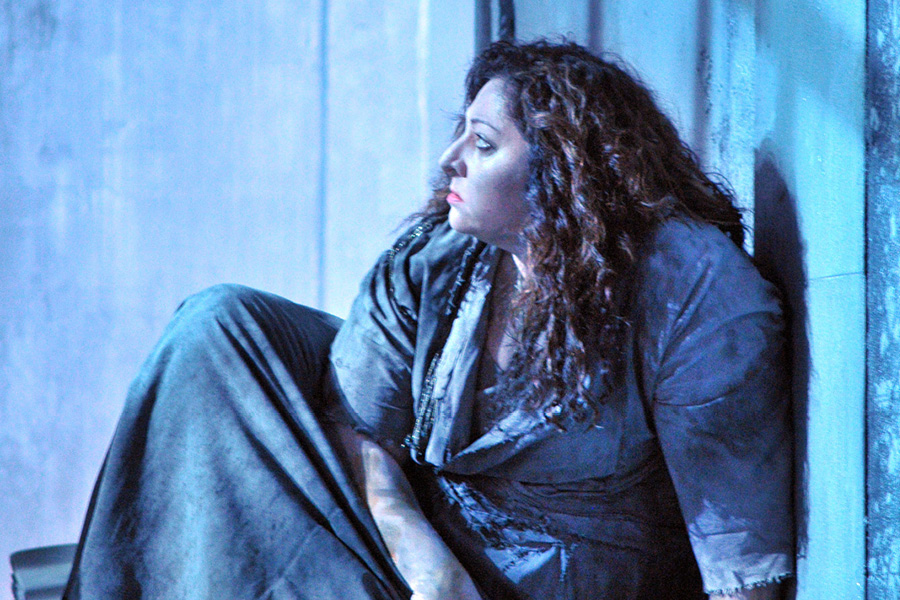April 06, 2021
Spotlight on Christine Goerke
A true dramatic soprano is perhaps the rarest voice on the international operatic scene. Without that voice, the largest-scale Wagner and Strauss works aren’t feasible to produce at the highest level. When a dramatic soprano comes along with the necessary vocal beauty, power, and size, matched by extraordinary musicality and electrifying stage presence, the result is world renown. That’s what happened in the stupendous career of Christine Goerke. A major star of prestigious opera companies throughout the world, she’s triumphed repeatedly in some of the most formidably difficult roles ever written.
Goerke hails from New York State, and in high school she was a wind player (clarinet and saxophone). Once she discovered opera, things moved pretty fast. She went through the highly competitive Glimmerglass and St. Louis young-artist programs before entering the program at the Met, where she was instantly noticed and her potential was already viewed by many as that of a dramatic soprano. Wisely, she resisted jumping into that repertoire too soon, and built her reputation initially as a singer of Gluck, Handel, and Mozart. As her voice grew, so did her repertoire, with successes in roles as varied as Alice Ford/Falstaff and Mme. Lidoine/ Dialogues of the Carmelites.

There came a moment when the big German roles beckoned to a voice that was ready for them. The turning point—the moment when the world knew that a dramatic-soprano star had truly arrived—was perhaps the Dyer’s Wife in Die Frau ohne Schatten (2013) at the Met, a hair-raising challenge and one that earned Goerke truly extraordinary acclaim. The title role/Elektra followed, including not only Goerke’s widely acclaimed Lyric debut (2012), but also performances in Madrid (role debut), London (Royal Opera), San Francisco, Toronto, and Detroit, among other companies. Her Lyric success as Elektra led to similar triumphs with her portrayals of Brünnhilde/Ring cycle; she sang Die Walküre (2017) and Siegfried (2018), here, but the pandemic prevented her from completing the cycle last season with Götterdämmerung. Another exciting role debut came during Lyric's 2016/17 season as Goerke starred as Cassandre in the company's first-ever staging of an all-new production of Berlioz's epic Les Troyens.
She’s excelled elsewhere in other Wagner roles, such as Ortrud/Lohengrin (Houston, Berlin) and Kundry/Parsifal (Turin). Her long-awaited Isolde has been heard in excerpts, sung in concert with orchestras in Amsterdam, Lucerne, and Washington. Met audiences have acclaimed her Turandot, and she created a sensation at Houston Grand Opera as Eboli/Don Carlo.

Christine Goerke as Brünnhilde in Die Walküre, 2017/18 Season
Goerke has accustomed her legions of admirers to extraordinarily high standards. Her musicianship is astounding, and—as she showed from the first notes of Elektra at her Lyric debut—she also communicates onstage with blazing intensity, thanks to her consuming, all-encompassing dramatic involvement. The sheer humanity she brings to all her roles colors every phrase heard from the rich, house-filling sound, which leaves any audience awestruck.
Christine Goerke will reprise her portrayal of Brünnhilde in Twilight: Gods, a reimagining of Wagner’s Götterdämmerung by Yuval Sharon, April 28, April 30, and May 2 at the Millennium Park Lakeside Parking Garage. Twilight: Gods is a co-production of Lyric Opera of Chicago and Michigan Opera Theatre, where Goerke has recently been named associate artistic director.

Christine Goerke debuted triumphantly at Lyric in the title role of Elektra, to open the 2012/13 Season.
Twilight: Gods is a project of Lyric Unlimited and is generously sponsored by
Julie & Roger Baskes
Ethel & William Gofen
Donald & Anne Edwards
Twilight: Gods is a collaboration between Lyric Opera of Chicago and Michigan Opera Theatre.
Production space generously provided by Millennium Garages - Millennium Lakeside Parking Garage
Photo credits: Todd Rosenberg, Arielle Doneson, Cory Weaver, Dan Rest
